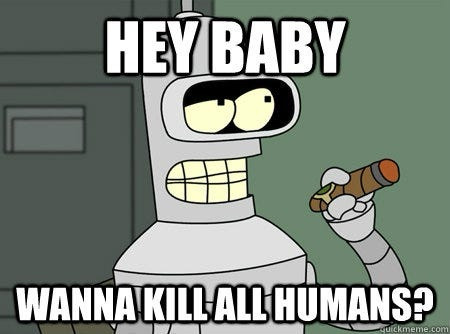“X-Men ’97,” the revival of the beloved 90s animated series, is not just good – it’s phenomenal. Currently boasting a stellar 99% rating on Rotten Tomatoes, this show is a standout in Marvel’s recent productions, even for those who, like myself, have become somewhat disillusioned with the superhero genre. If you’re wondering where to watch X-Men ’97, you’re in the right place, and trust me, you won’t want to miss this.
As someone who grew up captivated by “X-Men: The Animated Series” and “X-Men Evolution,” and even dabbled in the comics, I felt a nostalgic pull towards “X-Men ’97.” However, years of Marvel movies that often prioritized spectacle over substance had tempered my expectations. I longed for the nuanced storytelling and thematic depth that initially drew me to the X-Men universe – the exploration of prejudice, oppression, and the complexities of morality in a world that fears and misunderstands mutants.
Thankfully, “X-Men ’97” not only met but exceeded my hopes. This isn’t just a trip down memory lane; it’s a thoughtful and exhilarating continuation that respects its source material while forging its own path. Created by Beau DeMayo, the show feels crafted by someone who deeply understands and appreciates the heart of the X-Men.
Rediscovering the Magic of Mutants: Why X-Men ’97 is Must-See TV
Beau DeMayo’s personal connection to the X-Men is palpable throughout the series. As a gay black man adopted into a white family and raised in the South alongside Korean siblings, DeMayo resonated deeply with Professor Xavier’s vision of a found family for those ostracized for their differences. This perspective infuses “X-Men ’97” with a powerful undercurrent of empathy and understanding.
The X-Men, at their core, are a family forged in the fires of prejudice. They are individuals marginalized for their genetic makeup, finding strength and solace in their shared experiences. While they battle menacing mutants and formidable robots, their most compelling struggle is for acceptance and belonging in a world that fears them.
 Bender the robot from Futurama saying Kill all humans
Bender the robot from Futurama saying Kill all humans
DeMayo’s passion for the franchise shines through in every episode, creating a show that not only pays homage to the legacy of “X-Men” but also seamlessly continues the narrative established in “X-Men: The Animated Series.” It’s a masterclass in revival done right.
Picking Up Where We Left Off: What to Expect in X-Men ’97
“X-Men ’97” directly follows the events of “The Animated Series,” set a year after its 1997 finale. Professor Xavier, having survived an assassination attempt, has departed Earth to be with Lilandra Neramani of the Shi’ar. His presumed absence has led to a surge in both sympathy and suspicion towards mutant-kind.
In Xavier’s absence, Cyclops, now married to a pregnant Jean Grey, steps up to lead the X-Men. The team includes familiar faces like Storm, Wolverine, Beast, Morph, Rogue, Gambit, Jubilee, and Bishop. The premiere episode is a delightful wave of nostalgia, packed with character-driven moments and dynamic action sequences. A major plot point is revealed early on: Magneto, Xavier’s complex friend and adversary, inherits everything in Xavier’s will, placing him in control of the X-Men.
This sets the stage for compelling storylines that unfold throughout the season, particularly Magneto’s arc. Haunted by his experiences in World War II and the Holocaust, Magneto harbors a deep cynicism about humanity and believes in mutant superiority. Inheriting Xavier’s mantle forces him to confront his beliefs and consider a path of peace and tolerance.
Magneto’s character arc is a standout. Initially, his imposing presence and questionable intentions might raise eyebrows, but the show skillfully develops his perspective, presenting a nuanced and even sympathetic portrayal of his motivations. It’s a testament to the show’s writing that you might find yourself, like me, almost agreeing with his sometimes extreme viewpoints.
Beyond Wolverine and Jean Grey: A Focus on the Ensemble
One of the greatest strengths of “X-Men ’97” is its commitment to developing its ensemble cast. It avoids the common pitfall of over-focusing on Wolverine and Jean Grey, characters who, while popular, have often dominated X-Men narratives to the detriment of others.
 Bender the robot from Futurama saying Kill all humans
Bender the robot from Futurama saying Kill all humans
I, for one, am relieved to see a break from tired tropes like Jean Grey’s Phoenix saga and Wolverine’s endless quest for self-discovery. We’ve seen countless iterations of Bruce Wayne’s parents dying, Krypton’s destruction, and the Phoenix storyline. “X-Men ’97” understands that there’s a rich tapestry of mutant stories beyond these overplayed narratives.
Instead, the series shines a spotlight on characters like Cyclops, Storm, and Jubilee. Cyclops, often reduced to a side character in films, is portrayed as the capable and emotionally complex leader he is in the comics. His struggles to balance leadership, impending fatherhood, and team dynamics are central to the season’s emotional core.
The relationships between characters are beautifully developed. Storm and Jean share a heartwarming sisterhood, confiding in each other and offering mutual support. Morph, a non-binary character from the original series, provides both comedic relief and poignant moments, forming a particularly engaging dynamic with Wolverine, revealing a lighter side to the often brooding mutant. By prioritizing these ensemble dynamics, “X-Men ’97” delivers fresh and compelling versions of even well-known characters.
Overcoming Superhero Fatigue: Why X-Men ’97 Still Matters
If you’re experiencing superhero fatigue, “X-Men ’97” offers a refreshing change of pace. This isn’t just another superhero slugfest. It’s a story about marginalized individuals seeking community and acceptance. It evokes the feeling of Saturday morning cartoons, offering a serialized narrative that unfolds weekly, allowing for character development and emotional investment. Imagine settling in with pajamas and sugary cereal for a dose of beautifully animated, dramatic storytelling.
For those unfamiliar with the X-Men universe or “The Animated Series,” don’t be intimidated. While nostalgia certainly enhances the experience for longtime fans, “X-Men ’97” is accessible to newcomers. The opening sequence, a direct carryover from the original series, effectively introduces the core characters and tone. The introduction of Roberto de Costa/Sunspot serves as an audience surrogate, allowing new viewers to connect with the world and learn alongside him.
Ready to Join the Mutant Movement? Here’s Where to Watch X-Men ’97
So, where can you watch X-Men ’97? The answer is simple: Disney+. This streaming service is the exclusive home for the series, making it readily accessible to subscribers.
Check out X-Men ’97 on Disney+ and prepare to be captivated.
Despite the behind-the-scenes shakeup with Beau DeMayo’s departure before the premiere, the first season is a resounding success, and he reportedly contributed significantly to the second season. The future of “X-Men ’97” is bright, and I, along with countless fans, eagerly await its continuation.
“X-Men ’97” has reignited my childhood passion for mutants, and I’m excited to delve back into the X-Men universe, explore comics, and perhaps even revisit those Marvel movies I once swore off. If a show can make me appreciate Jean Grey, anything is possible.
If you’ve been on the fence, I urge you to give “X-Men ’97” a try. And if you’re already a fan, let me know in the comments who your favorite character is and what you’re hoping for in Season 2. Let’s connect and celebrate this incredible revival together!

